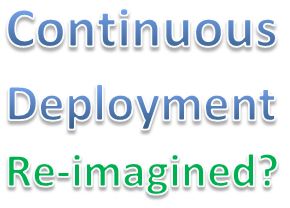“There are venture firms here in The Valley that won’t even fund a company unless they employ lean startup methodologies”
I just love it when, despite ridiculous odds, I find some important video that I, as a consummate outsider, was obviously never meant to.
This is usually where the video title was so unintelligibly technical that if you were an outsider, you’d never dream of deliberately clicking on it, or if the title somehow intrigued you enough to click on it, but what you got to see and hear in the first few moments was so obscure and jargon-filled that you instantly hit the back button.
I submit, for your edification and delight, two amazing (but maybe more than a bit demanding) videos.
We’ll take the one with the “what on earth possessed me to click on that” title first.
Here’s a quote (in addition to the one above) from it, demonstrating just how extraordinarily pervasive Steve Blank and Eric Ries’s ideas are becoming:
“There are Fortune 500 companies which, when they’re going to launch a new product or enter a new market, you’ll see them documenting their business model and then testing the hypotheses rigorously and then running a lean development process to execute on it”
Here’s that ‘oh so catchy’ title:
Iterationless Kanban & Continuous Deployment – Atlassian Summit 2011
http://www.youtube.com/watch?v=FXUizn5Aze0
Iterationless? Are you serious?
If you’re completely befuddled as to how on earth ‘iterationless’ could possibly apply to anything at all in this (Lean startup) context (especially as Ries’s methodology is all about iterating more rapidly and relentlessly than you could ever have imagined) then you would be just as bewildered as I was before I watched the video.
I can’t actually remember if the explanation for this seemingly contradictory title was ever explicitly given in the video.
And yes (surprise!) this one was so fascinating that I did actually watch the whole thing all the way through before putting this posting together.
But the idea in the title is actually all about (and this is just my take) redefining iteration, or at least replacing/re-imagining ‘the thing that we would call iteration’ with something else that the video’s presenter Erik Huddleston calls ‘the beat of the customer’ in a slide in the video.
Personally I would probably characterise what he is talking about as ‘synchronising the development process with the rhythm (heartbeat?) of customer requirements as they happen within the customer’s organisation.
If we’re not too concerned about getting too medical in our analogies, this is essentially about synchronising the heartbeat of the developer (the deployment cycle) with the heartbeat of the customer (the requirements emerging from the cycles within their business models, operational processes and strategic vision).
Here are two (seminal, I suspect) articles which cover the issues:
And the original by Erik himself, which begins:
“Friends and Family, we are gathered together here today to morn the passing of an old friend.”
Video number two in this series is of the kind where you might just possibly have clicked on the title out of curiosity if you had watched a few Eric Ries videos, but after a minute or so, you will find yourself disappearing into a bottomless pit of unexplained jargon which would only be intelligible by inhabitants of bottomless pits of the relevant technology.
However, what you get for your patience, if you stick around for long enough, like Alice descending down the rabbit hole, is a world where Eric Ries Continuous Deployment is being attempted (and struggled with?) by a developer team which is neither the ‘mega team’ described in the first video, nor is it Eric Ries’s own IMVU team.
Fascinating insights, comparisons (and revelations? I’m not sure that all of what is discussed in the video appears anywhere else) ensue.
It’s yet another one of those ‘the iij says that you should just let it wash over you’ videos.
But if you want to see what happens when you try out the software development process behind the startup ideas in Eric Ries book, this video offers an intriguing sneak peek in a completely different way to the first video.
It’s David Cramer of Disqus at an event called EuroPython 2011


